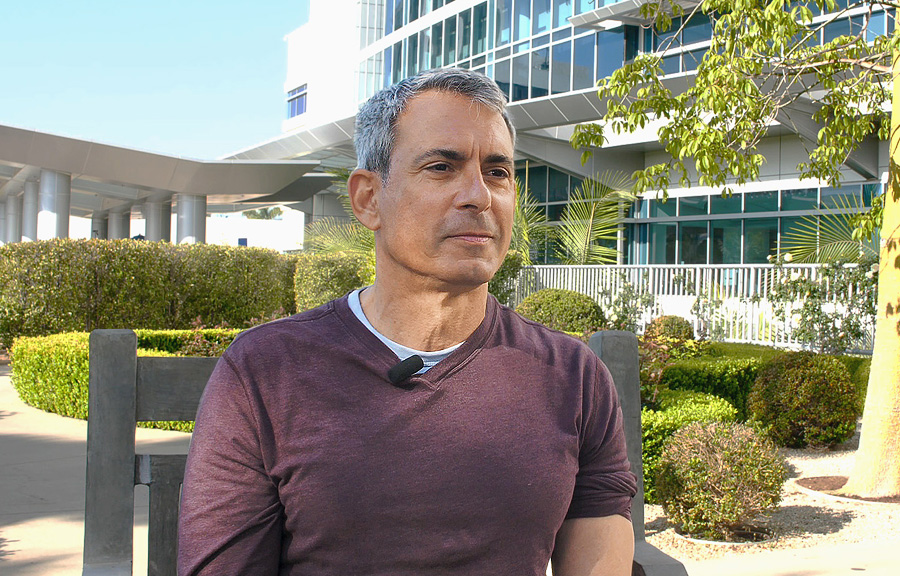
Mark Perzely was diagnosed with Small Cell Carcinoma—a rare and aggressive cancer which developed in his bladder, occurs in only 0.5 to 0.7 percent of all bladder cancers and has a median survival rate of 1.7 years. The cell growth rate for these cells is distinctly rapid. “Once small-cell spreads, it won’t stop, and there are no approved treatments,” Mark announced in his testimonial. According to the journal of Clinical Genitourinary Cancer, there are no standard guidelines for the disease either, which makes Mark’s recovery even more impressive.
[Clinical trials are] a win-win situation if there are no other options available… or seems to be the best option.
Who benefits from clinical trials?
Procedures and medications which undergo a clinical trial are beneficial because the need to address a disease that has no standard treatment is imperative. The results of the trial may lead to approved and administered treatments globally. Those patients who have a rare disease or late-stage cancer notably benefit because these treatments tend to be groundbreaking, resulting in the prolonging of one’s life, similar to Mark’s. It is also critical that patients explore the trials available to them long before they become a last resort.
Listen to Mark detail his prognosis and clinical trial experience
Mark Perzley is interviewed by Saint John’s Cancer Institute in Santa Monica, California.
What is a Neobladder?
Mark mentions in his testimonial he was given a neobladder constructed from parts of his intestine after his bladder was surgically removed. A neobladder is a pouch that connects to the urethra and ureters—tubes that allows liquid waste to pass out of the body from the kidneys. Mark’s neobladder is still functioning 4 years later.
Principal Investigator
A principal investigator is the lead researcher or holds an independent grant, and oversees the integrity of a clinical trial or study.
Dr. Prezemyslay Twardowski was the principal investigator for the trial Mark participated in. He has continued to treat Mark every two weeks with immunotherapy; keeping Mark recurrent free years after the trial ended. Because, “there is no approved [treatment] for [small cell carcinoma] and still no approval for what I take. It is a rare occurrence,” Mark has no other options of care for the disease he has, according to his own words. (how immunotherapy works)
At Saint John’s Cancer Institute, our lead investigators are also practicing physicians at the Health Center, which enhances our patient’s care by applying research knowledge while in the clinic, thereby eliminating any separation between trials and ongoing care.
What is a placebo in a study?
A placebo usually comes in a pill or an injection and does not contain any medication. Placebos allow scientists to see how much of the medication’s effect is due to the drug itself or from other factors.
Mark made the clinical trial coordinators aware he did not want to be a part of a placebo.
How to qualify for a study/trial?
According to Mark, to qualify for certain studies, “drug companies want certain people.” Clinical trials will have exclusion and inclusion qualifications, which frame essential data points. To search for a clinical trial, use the database clinicaltrials.gov. All details about a trial will be listed there, including contact information.
In order to begin the qualification process, patients will need to have a conversation with their primary care physician or oncologist. Similar to Mark’s case, your physician may already be aware of a specific trial that may benefit you.
If you have questions or would like to know about the clinical trials at Saint John’s Cancer Institute click here to see our current trials, or call our clinical trial information desk: 310-582-7448.
Transforming biomedical research and medicine into promising new treatments used clinically starts here at Saint John’s Cancer Institute.

